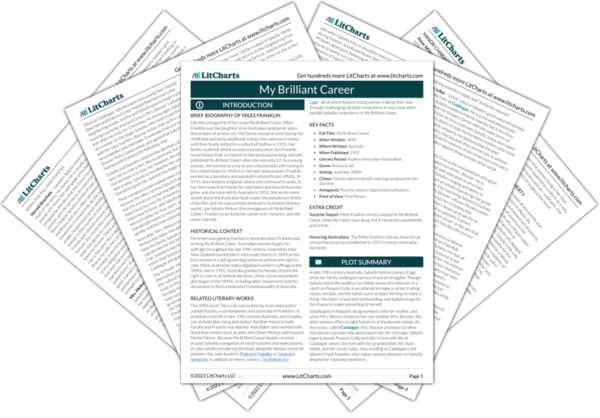Sybylla is often plagued by insecurities, but at her core, she doesn’t want to change who she is, and she further recognizes that she is too much herself to make that change effectively. She recognizes that she does not fit in at Possum Gully because it is too “narrow” for her, not because of a personal failing, and she is able to broaden that view to encapsulate the various injustices of the world around her. However, Sybylla doesn’t believe that any individual can change these injustices (especially not a woman), and this belief makes knowledge of such injustices feel like a burden.
